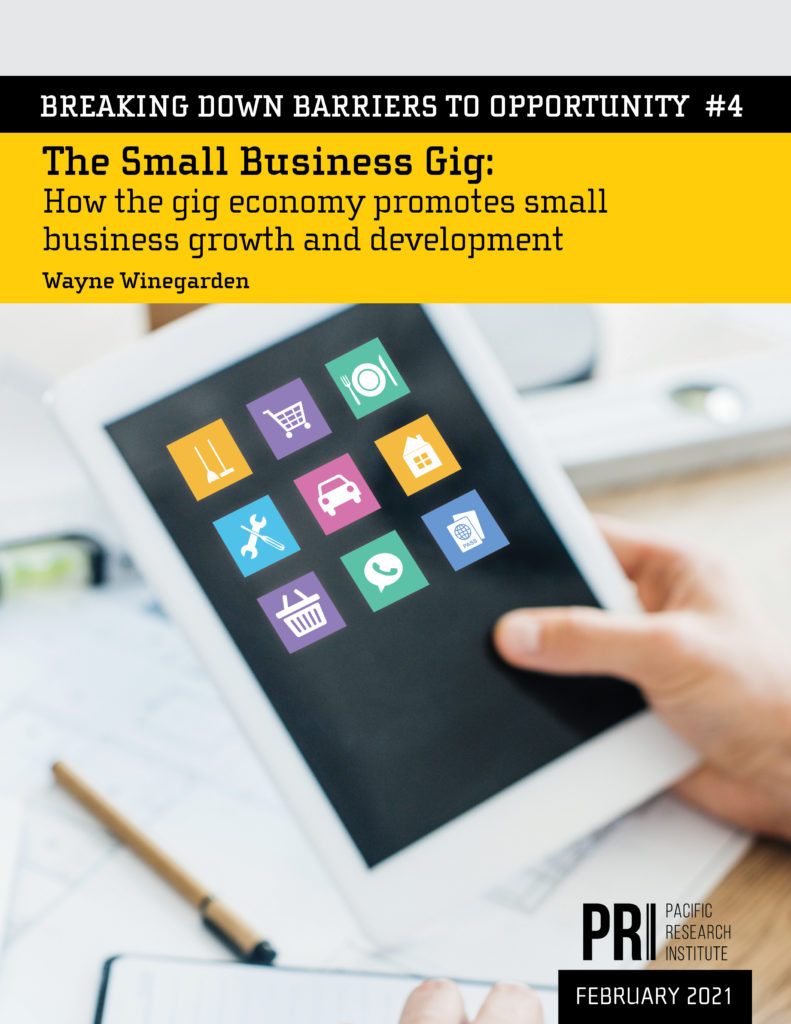Amid a renewed push in Congress and states to enact new gig economy restrictions following California’s controversial AB 5, a new study released today by the nonpartisan Pacific Research Institute finds that enacting these harmful laws would hinder innovation and restrict people’s ability to become entrepreneurs and provide for their families.
Click here to download the study
“By using technology to create innovative new platforms bringing together buyers and sellers, the gig economy helps entrepreneurs prosper and lowers customer costs,” said Dr. Wayne Winegarden, PRI senior fellow in business and economics and the study’s author.
“The Small Business Gig,” the fourth paper in PRI’s Breaking Down Barriers to Opportunity series, explores how the gig economy promotes small business growth and development. Previous papers in the series explored how entrepreneurship lifts people out of poverty, and how entrepreneurship can alleviate America’s health care challenges.
Winegarden explores how the gig economy is becoming an increasingly important way Americans buy goods and services and earn a living. A 2018 Gallup survey found that 36 percent of American workers today have some type of a gig worker arrangement.
Yet proponents of laws like AB 5 argue that gig economy firms are exploitative. But Winegarden cites an ADP Research Institute survey documenting that 70 percent of gig workers are independent workers by choice, while research from the Gig Economy Data Hub found that more than two-thirds were satisfied with their current work arrangement.
Instead of enacting misguided laws like AB 5, Winegarden recommends that state and federal leaders embrace gig economy entrepreneurship by enacting free-market policies to:
- Repeal regulations that have imposed terrible burdens on people’s ability to become gig economy entrepreneurs;
- Reform unnecessary regulations that create disadvantages for traditional economy firms, while imposing the smallest necessary regulations on gig economy companies; and
- Modernize health insurance, retirement plans, and other benefits so gig economy workers have access to the same tax-free benefits as workers for more traditional companies.
“Government shouldn’t be picking economic winners and losers through new restrictions that limit people’s freedom to become entrepreneurs while preserving the old way of doing work,” Winegarden said. “Instead, Washington and Sacramento should adopt the right policies so the gig economy continues to drive innovation, economic growth, and higher incomes.”
Dr. Wayne Winegarden is a Senior Fellow in Business and Economics, and Director of the Center for Medical Economics and Innovation at Pacific Research Institute.


